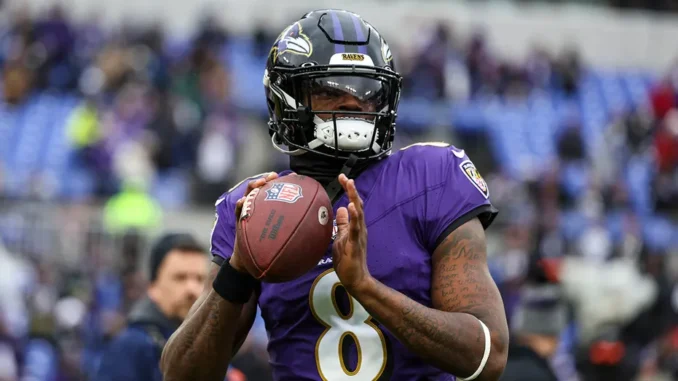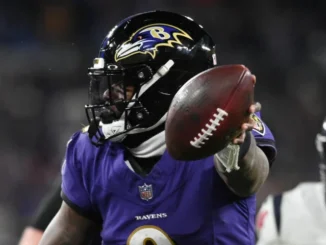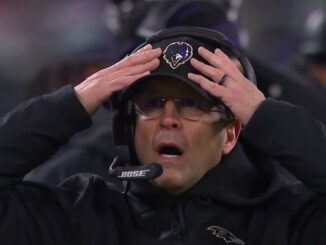
In the NFL, every move, every decision, carries weight. For the Baltimore Ravens, the absence of star quarterback Lamar Jackson from Organized Team Activities (OTAs) has sent shockwaves through the franchise and its fanbase. The repercussions of his absence loom large over the team’s preparations for the upcoming season, raising questions about leadership, commitment, and the delicate balance between player autonomy and team cohesion.
Jackson, the electrifying quarterback who has captivated football fans with his dynamic playstyle, chose to skip the voluntary OTAs, opting instead to train on his own. While such decisions are not uncommon among NFL players, the impact of Jackson’s absence is amplified by his central role in the Ravens’ success. As the face of the franchise and a former NFL MVP, his presence on the field is synonymous with Baltimore’s aspirations for championship glory.
The void left by Jackson’s absence extends beyond the gridiron. In the hyper-competitive landscape of the NFL, every opportunity for team bonding and cohesion is crucial. OTAs serve not only as a platform for players to refine their skills and acclimate to new teammates but also as a time for establishing the camaraderie and chemistry that underpin successful teams. Jackson’s decision to train independently disrupts this process, potentially eroding the unity and solidarity that are essential for a team to thrive in the face of adversity.
Moreover, Jackson’s absence raises questions about his commitment to the Ravens and their pursuit of excellence. While NFL players have the right to manage their offseason training regimen as they see fit, the optics of a star player choosing individual workouts over team activities can be concerning for fans and teammates alike. In a league where success hinges on sacrifice, dedication, and a collective sense of purpose, Jackson’s decision to prioritize personal development over team unity may strain his relationship with both the organization and his fellow players.
The consequences of Jackson’s absence extend beyond the intangible realm of team dynamics. With the NFL offseason serving as a crucial period for player development and strategic planning, every missed opportunity represents a potential setback for the team’s aspirations. Jackson’s absence from OTAs deprives him of valuable practice time with his teammates and coaching staff, hindering their ability to fine-tune their offensive schemes and build upon the successes of previous seasons. In a league where marginal gains can make the difference between victory and defeat, the loss of even a single offseason session could have far-reaching implications for the Ravens’ competitive prospects.
Furthermore, Jackson’s absence from OTAs could have financial implications for both him and the Ravens. While OTAs are technically voluntary, participation often carries financial incentives in the form of workout bonuses and performance incentives. By opting out of these sessions, Jackson may be foregoing potential earnings while also depriving the team of an opportunity to evaluate his progress and conditioning ahead of the upcoming season. In an era where the NFL is increasingly driven by metrics and performance-based incentives, every missed opportunity to showcase one’s skills and dedication could have lasting repercussions for both player and team.
As the Ravens grapple with the fallout from Jackson’s absence, they must confront the broader questions it raises about the nature of leadership, accountability, and the delicate balance between individual autonomy and collective responsibility. While Jackson’s decision to prioritize personal development is understandable, it underscores the challenges of fostering a cohesive team culture in an era of increasing player empowerment. As the Ravens navigate the complexities of the modern NFL landscape, they must find a way to reconcile the aspirations of individual players with the collective goals of the team, lest they risk undermining the very foundation upon which their success is built.
In the end, the true measure of Jackson’s absence from OTAs will be determined by the team’s performance on the field. If the Ravens can overcome the challenges posed by his absence and achieve success in the upcoming season, his decision may ultimately be forgiven, if not forgotten. However, if his absence proves to be a harbinger of discord and dysfunction within the team, it may serve as a cautionary tale for future generations of NFL players and organizations alike. Only time will tell the full extent of the consequences of Lamar Jackson’s absence from OTAs, but one thing is certain: the ripple effects will be felt far beyond the confines of the football field.



Be the first to comment